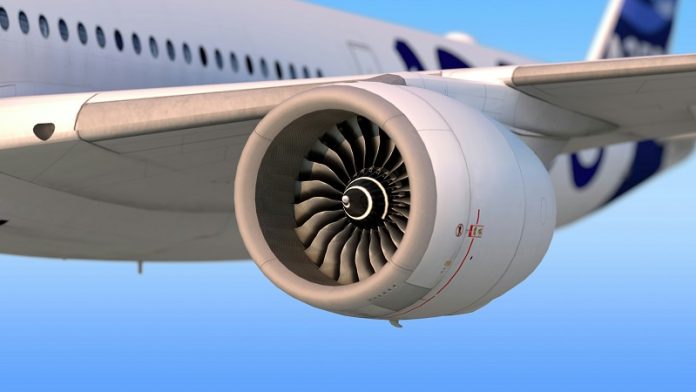
Modern airplanes are more fuel-efficient and produce less carbon than older models, but a new study reveals that they might be causing more environmental harm in another way—through their contrails.
These long, thin clouds left behind by aircraft exhaust can trap heat in the Earth’s atmosphere, contributing to global warming.
The study, conducted by scientists at Imperial College London and published in Environmental Research Letters, highlights the complex challenges the aviation industry faces in reducing its impact on the climate.
The research also found that private jets, often used by the wealthy, are responsible for creating more contrails than previously thought, raising further concerns about their environmental impact.
Contrails, short for “condensation trails,” are clouds that form when hot exhaust from an airplane meets the cold, moist air at high altitudes.
These clouds might look harmless, but they actually play a significant role in warming the planet by trapping heat that would otherwise escape into space.
While scientists have known for a while that contrails contribute to global warming, the exact extent of their impact has been less clear.
What is known, however, is that the warming effect of contrails could be even greater than the carbon emissions from burning jet fuel.
The study used machine learning to analyze satellite data from more than 64,000 contrails created by different aircraft flying over the North Atlantic Ocean.
It found that modern planes, such as the Airbus A350 and Boeing 787, which fly at higher altitudes (above 38,000 feet or about 12 kilometers), are creating more contrails than older planes that fly slightly lower (around 35,000 feet or 11 kilometers).
These newer planes are designed to fly higher where the air is thinner, which reduces aerodynamic drag and allows them to use less fuel, cutting down on carbon emissions.
However, this also means that they are creating contrails that last longer, increasing the warming effect on the climate.
Dr. Edward Gryspeerdt, the lead author of the study, explained that this situation creates a “double-whammy” for the environment.
While modern planes are more fuel-efficient and produce less carbon per passenger, their longer-lasting contrails are trapping more heat in the atmosphere, increasing the overall climate impact of flying.
“This doesn’t mean that more efficient aircraft are bad,” Gryspeerdt clarified. “They are still better in terms of carbon emissions, but this finding shows just how difficult it is to reduce the climate impact of aviation.”
One possible way to reduce the lifetime of contrails is by cutting down on the amount of soot produced by aircraft engines.
Soot particles are created when fuel burns inefficiently, and they play a crucial role in how contrails form and how long they last.
Modern aircraft engines are cleaner and produce less soot, which can help shorten the life of contrails, reducing their warming effect.
The study also uncovered surprising findings about private jets.
Despite being smaller and using less fuel than commercial aircraft, private jets often fly at even higher altitudes (above 40,000 feet), where they create contrails just as frequently as much larger planes.
This is concerning because private jets already produce a disproportionately large amount of carbon emissions per passenger.
Dr. Gryspeerdt noted, “Our findings add to the concerns about the environmental impact of private jets, especially as poorer countries continue to suffer from extreme weather caused by climate change.”
This study underscores the complicated trade-offs involved in reducing the climate impact of aviation. While advancements in aircraft technology have led to lower carbon emissions, the unintended consequence of more persistent contrails presents a new challenge.
As the aviation industry works to address its role in climate change, finding ways to mitigate the effects of contrails will be crucial for making real progress.



